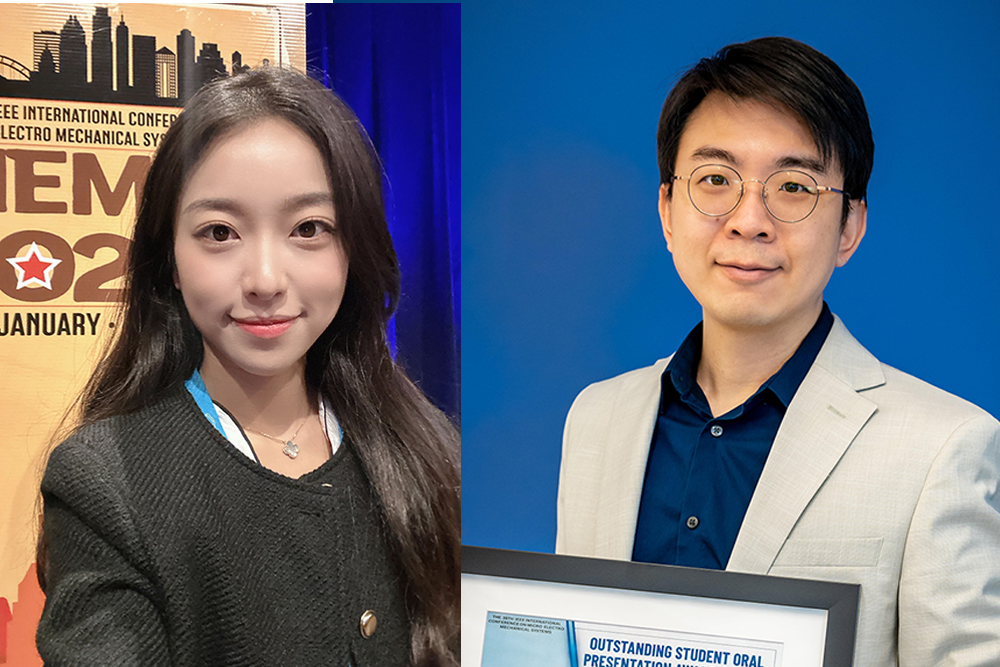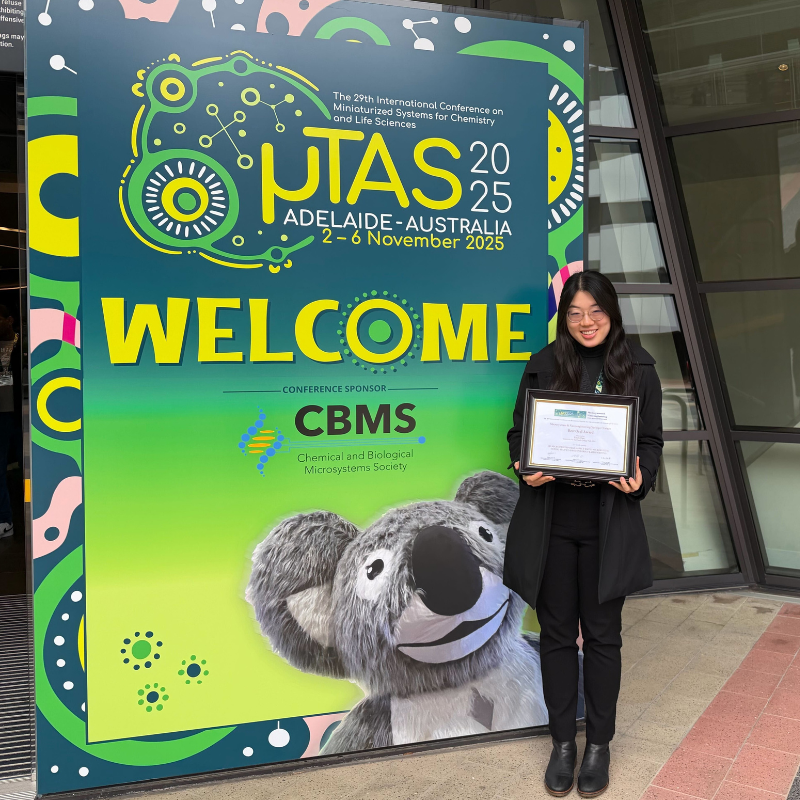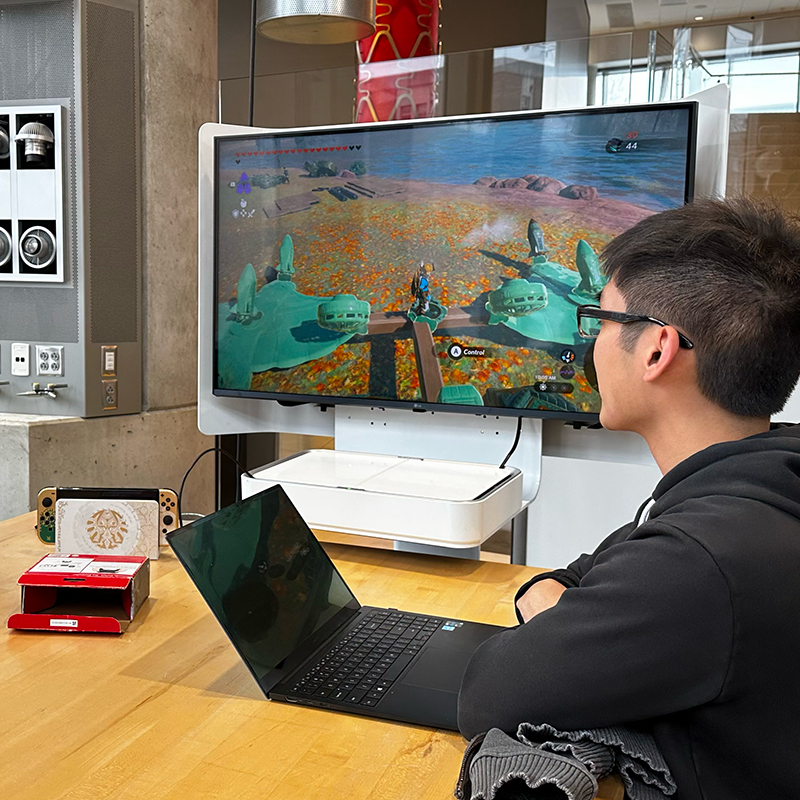News Story
Bentley, Sochol Groups Win Best Paper Award at IEEE MEMS

Lead authors Xin Xu (Mechanical Engineering Ph.D. candidate) and Dr. Chen-Yu Chen (BioE Ph.D. ‘23).
Bioengineering postdoctoral researcher Chen-Yu Chen and mechanical engineering Ph.D. candidate Xin Xu have been recognized with the Outstanding Student Oral Presentation Award at this year’s Institute of Electrical and Electronics Engineers International Conference on Micro Electro Mechanical Systems (IEEE MEMS 2025) in Taiwan.
Their paper, “3D-Microprinted Microfluidic Scaffolds and the Rapid Seeding Strategy for Organ-on-a-Chip Applications,” reports on collaborative research from the groups of Robert E. Fischell Distinguished Professor of Engineering William E. Bentley and Mechanical Engineering Associate Professor Ryan Sochol to explore a new strategy that could one day limit the need for animal testing in pharmaceutical development.
The annual IEEE MEMS conference is widely regarded as the premier international venue for the microsystems community, with an overall acceptance rate of approximately 40%, but less than 10% for oral presentations out of nearly 800 submissions. Among the oral presentations, only two winners were recognized, with the UMD team winning in the Chemical/Biological category. Notably, this marks the third IEEE MEMS Outstanding Presentation Award for Sochol’s Bioinspired Advanced Manufacturing (BAM) Lab in the past six years, following previous wins in both 2021 and 2019.
The work builds on the team’s earlier advancements presented at IEEE MEMS 2024, where they harnessed 3D nanoprinting to replicate the complex 3D structure of tiny vessels in the human body. The next challenge: how to recruit living cells to these intricate structures to also replicate biological functions.
In their award-winning work, the UMD team from the Robert E. Fischell Institute for Biomedical Devices unveiled two innovative strategies that can be used to rapidly coat sophisticated 3D microstructures with cells. In one demonstration, they recruited cell mimics onto a 3D-nanoprinted microfluidica scaffold inspired by UMD’s “M” logo.
In the future, the team’s goal is to apply their strategy to create new classes of organ-on-a-chip systems that can reduce, and in some cases replace, the use of animals in research and pharmaceutical testing. With their recently acquired $650,000 3D nanoprinter, the team also intends to explore commercial applications of their technology.
The award adds to an already remarkable year for Sochol’s group. In June 2024, their work was recognized with both the “Microsystems & Nanoengineering/Springer Nature Outstanding Paper Award” and the “Micromachines – MDPI Outstanding Poster Award” at the 21st Solid-State Sensors, Actuators and Microsystems Workshop in Hilton Head, SC. In October, his team won the IMT Masken und Teilungen AG – Microfluidics on Glass Award at the 28th International Conference on Miniaturized Systems for Chemistry and Life Sciences (µTAS 2024) in Montreal, Canada. And in November, Sochol was honored as an “American Society of Mechanical Engineers (ASME) Rising Star of Mechanical Engineering” at the International Mechanical Engineering Congress & Exposition (IMECE) in Portland, OR.
Published January 27, 2025









